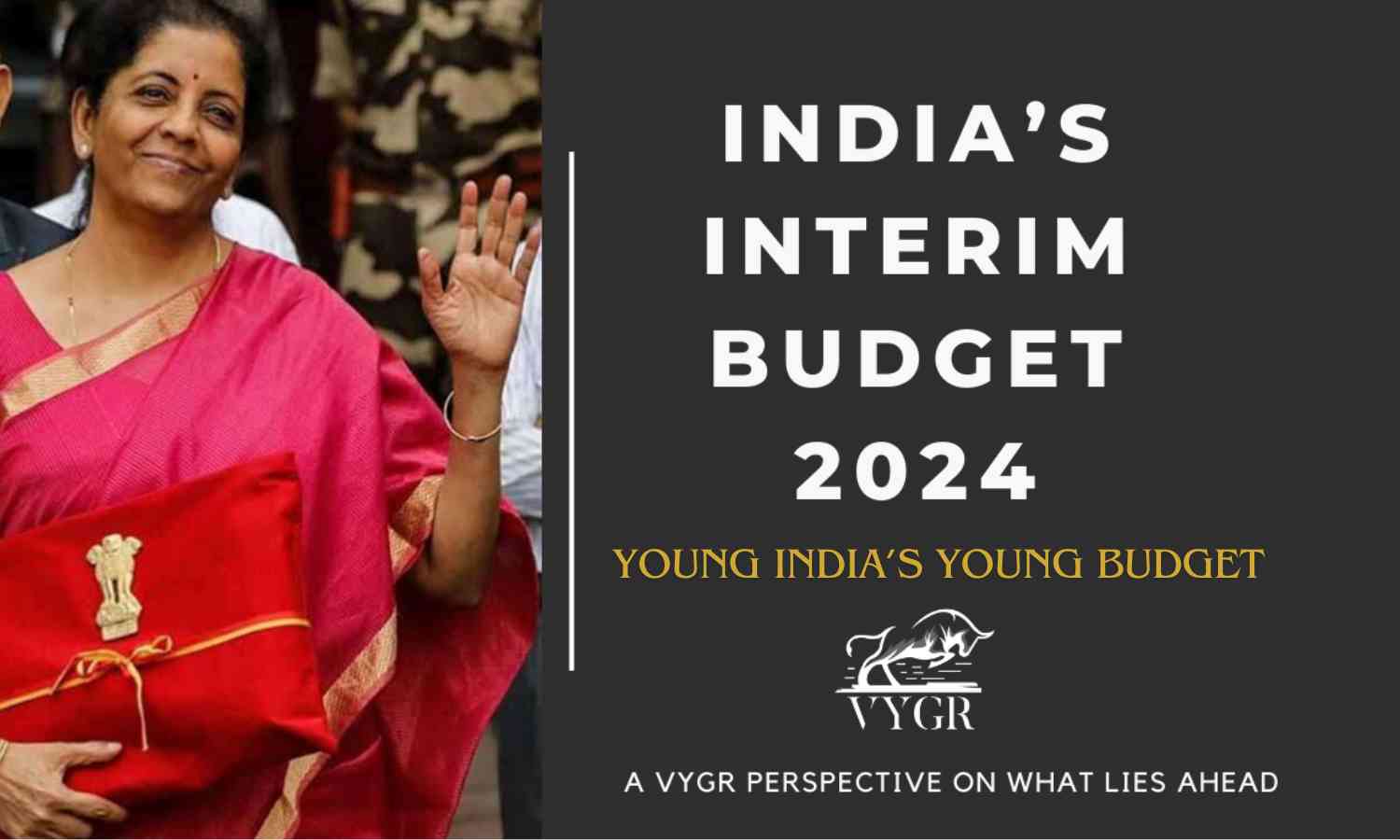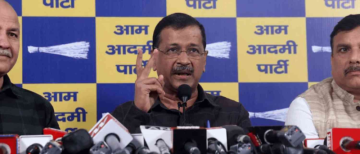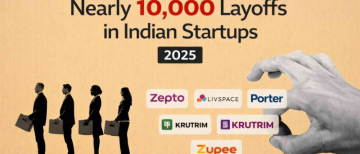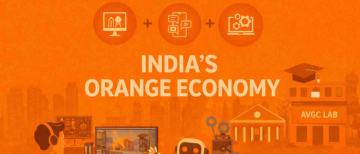We are only 77 years old as an independent nation. 73 annual budgets, 14 interim budgets and four special budgets have been presented thus far. This will be our 15th interim budget that Smt. Nirmala Sitharaman, our hon’ble Chief minister will present. Now India is a country of almost 142 crore people. A country that houses almost 1/6th of the world, has an important weight on its shoulders to do it right. Especially if 40% of that nation is below the age of 25.
Hence it is important we know from them what they need from the budget – do they even believe in it? Does the youth have hope that there’s something in there for them too?
Our recent podcast with a bunch of young minds brought us enlightening thoughts. Here are some excerpts from our conversation for your reading:
Let's start with the meetha first. Do you guys know what the Halwa ceremony is?
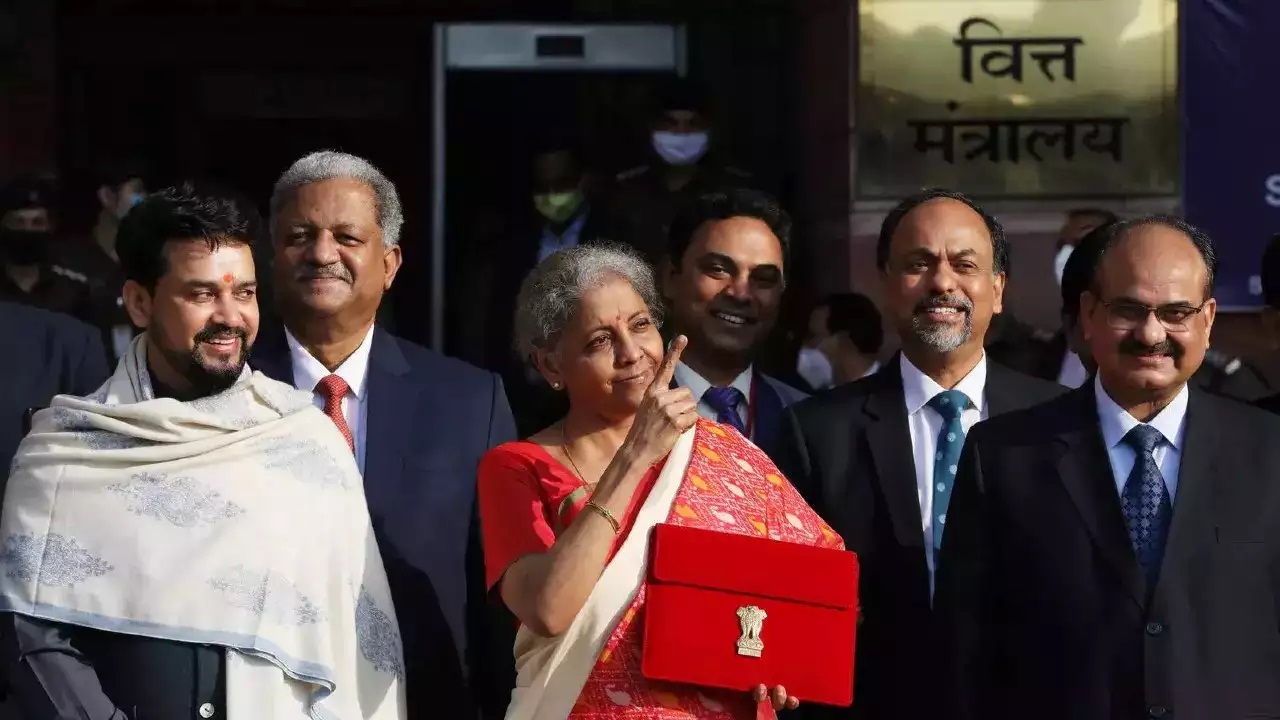
Priyansha Verma: Okay? So it's basically like, whenever the annual budget of the country is about to be prepared the financial minister, along with some of the people who are responsible for making it holds a special halwa ceremony where they make and distribute it among themselves before starting the process of budget printing.
I am Priyansha, a high school junior, and almost a senior. I am the founder of youth activism, aiming to educate and empower the youth. I am the social media director at Vorfreude. I am also the founder of a newly founded Ngo, called Ashiana Trust, where we aim to host, donation drives be it food, donation, rise, or sanitary napkin donation rise also, teaching the underprivileged.
I've been volunteering for 2.5-plus years, and I love helping people.
Sanyam Chhoriya (Jain): Yeah. Adding to what? Priyansha said the ceremony is a kind gesture to recognize the efforts of the entire Finance ministry, team staff and the head so that they keep making these efforts and help our country succeed in the finance domain.
I am Sanyam Chhoriya and I am from Nashik, and I currently stay in Pune because of my college. I'm on the verge of passing out of my final year.
I'm of 21 years age and in these almost 4 years of my college life I've been experimenting with a lot of things, maybe 2 startups, starting a hiring community that has been running for 2 years now. I've been going to multiple social camps. I've been invited thrice to Kolhapur, Nagpur and Vada districts to motivate kids and youngsters for their networking and growth with extracurricular activities. So yeah, that's about me.
Shivam: Yes, so for me, I'm Shivam. I'm in Goa, and I'm currently in college. I'm in my second year of electrical engineering. And I like electronics and reading about different fields and electronics as well as projects in areas like robotics and things like that.
The Halva ceremony is a good morale booster where all the members of the Finance Ministry since they have been working on the budget very hard for the past several weeks or months. It's also the beginning of a period of secrecy, because from now the budget is going to be printed, and the ministry officials are not going to be very much in contact with the outside world to prevent the yes, I agree. And that exactly ties us up to the fact that it's a secret.
It's a secret document because this is going to be unveiled to the world on the first of February.
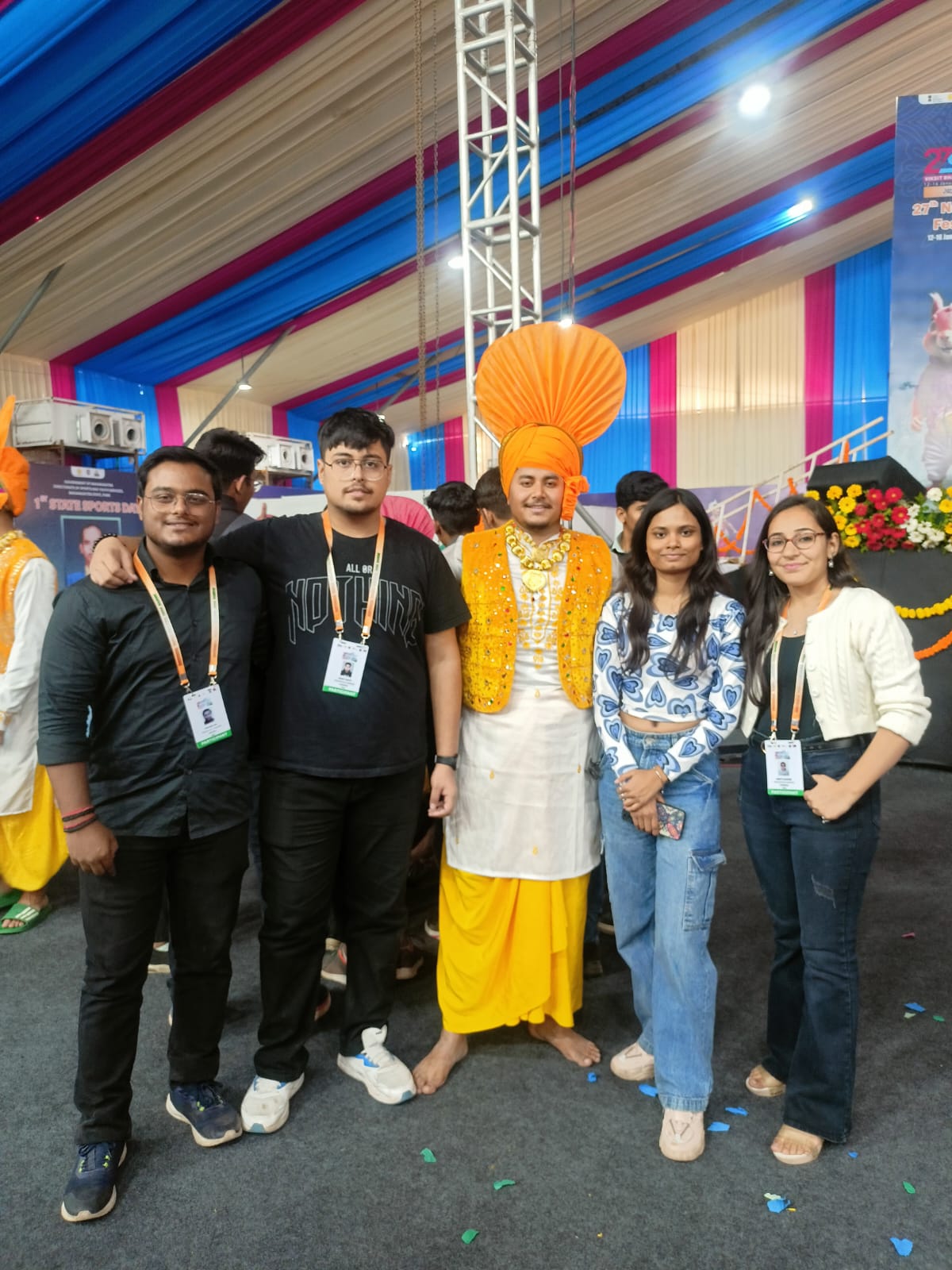
Udyati Goyal: Okay. So my name is Udyati Goyal, and I'm currently in my 12 standard. I'm the CEO of Vorfreude which focuses on holistic education, and, you know, provides resources to those who are underprivileged. And yeah, as far as the Halwa ceremony, I a having a sweet tooth myself. I think it's a really good way and an auspicious way to start the introduction of the budget. And, as Shivam said, it is like it's also the start of like a lock-in period where the top officials who are involved in the budget-making have to, you know, like maybe cut off whatever is planned.
Side note from the host Sonam Bhagat: And the reason why, again, I think, the ceremony means a lot, because it means the beginning of the printing of the Budget document. So the Finance Ministry officials, the Finance Minister everybody comes together to sort of, you know. I mean, it's like a boss-employee relationship. All this. It's essentially like a pizza party.
But in the form of a halwa, maybe. Let's just It signifies the secrecy and the essential cut-off from the outside world. It's like a morale booster, just like just like Shivam said.
Most of you are either studying to make a good career shortly or are already standing at the cusp of a job. What do you think is missing in your learnings that the government could fulfil with a budgetary sanction?
Udyati: So first of all, I think the Government could spend more on research and development like they've just so the new education policies have been implemented. But I still feel there are a lot of things that could be changed in the education levels and everything, so they could spend more on research and development and see what needs to be changed and change it accordingly. Then they could also,
you know, help students, for, like vocational studies where they get to tie up with the industries for practical and as well as fund schools or institutes to train teachers in a better way so that they could be equipped with the modern technology and how they could maybe help us better in our education.
As far as the underprivileged people, the Government could provide resources, and maybe laptops or computers where that could facilitate online learning so that it will be better for it's like the future. Because since the future is technology.
Sanyam Chhoriya (Jain): these 4 years of, or maybe 3 years of college life, the senior college life, of course. Those who are in higher schools. They might get to know this in future. But what I've experienced is be it any degree, any college, the college infrastructure. The college education system is reluctant to raise awareness about financial things. Financial knowledge is just passed out and you are, gonna get a job, or maybe you are going to get
your venture out, or maybe a community out, or maybe social venture out. So the financial aspect of it is, is one of the most important aspects, because other finances handle, though, and these steps are to be taken from the higher level. That is the government level. Then it comes to university levels, and then it comes down and boils down to college levels where teachers or maybe other domain experts come into the picture, maybe monthly, maybe twice a week or maybe regular sessions are organized where financial knowledge is provided, and also between all this, many of them do not agree to what they've chosen right back when they wanted to start their degree. For example, if I chose my field of computer engineering. But if I don’t like it, I have to live with that problem.
I do not want to live with that problem 3 years in the future. I do not want to waste those 3 years of my life, so why doesn't any university or any college provide a separate path, or maybe an alternate path key? Your one year of college life won't be wasted, and still, you can pursue another degree that you wish to pursue. But there may be obviously some restrictions that may be, some Extra classes, some extra learnings that the student has to do, but he or she can change that degree, or maybe the course he wishes to pursue in future.

Side note from the host: The National Skill Development Corporation does do this. Interestingly, the Government recently released, and that is something that I was pulling up while I was hearing you. The Government recently released the all-India Survey on higher education. It says that there are close to around 1168, over a thousand universities in India, close to 45,000 colleges, 12,000 standalone institutions, and since 2014-15.
So there is a sudden spurt, so far as traditional education is concerned. But what Sanyam is saying is that the curriculum essentially must change. That is perhaps something which can be centrally transformed rather than everybody doing their own thing.
Shivam: I believe that like, for example, engineering is the most wanted, basically one of the most common degrees in India, like lacks of students every year join engineering colleges. However, the vast majority of them are not able to get jobs in the core engineering skills because they don't have the skills necessary for the companies to hire them.
So I feel like it would be helpful if there was more industry and academic collaboration between the colleges and the companies who are going to hire the graduates.
For example, in internships and in training the students use particular software in something like architecture or designing which the actual companies use and so the students are equipped with the skills which they need to get a job immediately after college, and they can apply for the job immediately without having to upskill further and being unemployed even after a 4-year course.
Priyansha Verma: Yeah. So, adding to what Sanyam said, I agree with what he said. These days we know what mitochondria are. It is the powerhouse of the cell. But we don't know much about financial literacy. We don't know how to like manage the taxes and everything in the future. We'll have a problem with that, because like, there's a lack of practicality in what is taught in schools.
And I also want to say that colleges and everything should be in India should prioritize extracurricular activities as well. Whenever I'm talking about my experience, or what like, how I contributed to the society, and how I'm doing the social services or anything people come and tell me, then, this is not even important. If you're starting in India. You're just doing it for the Co college application. So I'm like, no, I'm not doing it just for the college applications.
I'm doing it because I want to. And then they're saying, Do you just wait wasting your time? Because it holds no importance when you're in? Yeah, because in foreign college applications they like, see what all extracurricular community service and everything you're doing and there is no scope for that like. They're just looking at the GPA. The grade you have, and that is all that is all that matters to them. And in the universities, they see who you are as a person.
Sonam Bhagat: So you believe, in the holistic side of things. But you also believe that early formative years of education are to the point of maybe where you've completed a certain number of years of education. So you can apply for a college education abroad. You are essentially leading 2 lives, because, one is to to sort of get past your academics. After all, that is something which impacts your grades, while on the other side, you are looking to also grow as a well-rounded individual. So it's like you moonlighting in your own life is that the feeling that all of you get and sometimes also stretches you guys out?
Priyansha Verma: Yeah, exactly. And I want people to realize that it's not just for college applications. Honestly, I want the government, or they should like to highlight it. This point. I believe that extracurriculars are equally important because India so has always given importance to academics as compared to extracurricular activities.
You don't just want to grow you also want to grow sustainably. What to your mind is something that will quickly make us a more green Economy and should be perhaps announced as part of the budget?
Sanyam Chhoriya (Jain): Yeah. So I'm not sure if this is the very right, or maybe the perfect timing, to put it, because maybe the Finance Ministry would have thought it because of their experience in the domain. But I think, climate, if climate is into consideration climate tech startups can be boosted. And maybe those can be categorized into youth, climate tech startups or youth climate-related social ventures. So if these social ventures are pushed, and maybe these are funded or maybe s. Some sort of fellowship policies are driven towards this. India can grow towards helping our climate do better.
Udyati Goyal: Yeah. So the government, for you know, helping in the green economy. Not for not as a student's perspective, but like in general, I feel that since now electric cars and stuff are coming, I feel like the Government, could, you know, spend more on the like electric cars, the infrastructure, the place where you have to charge. Everything is very expensive, so very few people can afford it.
So I feel they should subsidize taxes on those, and maybe increase taxes on the cars that run on petrol or Diesel, and then they could also, like, I said, provide infrastructure at their cost and help in the setting of the place for the electric vehicle, charging as they did for the telecom or the empty stuff previously.
Side note by Sonam Bhagat: That's important, and is something which perhaps is also quickly executable, because of the government's network, so far as you know, petroleum, or the government-owned companies who are responsible for the refining and the distribution of the Fuels. It could perhaps quickly come up with certain kinds of supercharges and increase the infrastructural network for electric vehicles. They're already providing a fair amount of stops, perhaps that could go up in terms of, you know, buying a green vehicle or a hybrid vehicle at least to start with if you're still doubtful of the infrastructure.
Shivam: Yeah. I agree with that. Yeah. But the electric vehicles point as well as subsidies for that kind of startup. I also believe that the Government can provide subsidies to companies to replace the electricity that they use, which, in our country still comes from, coal and fossil fuels with renewable sources, for example, subsidies to Co. Companies to replace the electricity in their factories with solar panels as well as subsidies for companies which can produce wind, energy, hydropower, and that's other sources of renewable energy.
Side note by Sonam Bhagat: So not just creating the the infrastructure for electric vehicles, but also the back end of it in the sense of what are you going to? How are you going to produce that kind of electricity to? To supercharge that network? So you're talking about everything in that in that value chain, so to speak. Not just the end vehicle or the end energy spend outlet for that matter.
Priyansha Verma: Yeah. So I agree with both of them. Investments in renewable energy infrastructure like solar and wind power should be prioritized in budgetary allocations. And Udyati said that the Government could easily promote electrical vehicles by like giving out schemes and stuff so that people are motivated to buy electric vehicles which in turn will help us.
Side note by Sonam Bhagat: I think there has been a fair amount of impetus that the Government has given to some of the green startups some of the climate tech startups. And it's not just the government. We have to understand that an entire ecosystem comes together to change something. So if we have to meet the COP goals that we've set for ourselves, and being one of the top 5 economies in the world, we respond to drive action, not just for ourselves, but for the rest of the world. Now everyone's looking at us. And like I said, at the beginning of this conversation. We house one-sixth of the world's population. So what we are doing makes a difference, not just to other people. you know the way they are doing what they're doing to other people's industry other people's methods of of leading their everyday lives, but also the climate. I mean, if 140 crore people on the earth are doing something, it better be it better be at least somewhere.
We all play games online and eSports coming under higher GST was a bummer. Should there be rollbacks? Tax reliefs for gaming sportspeople?
Priyansha Verma: Oh, so give okay. In my school also, we have a separate club. For gaming, like, we have a club which has 4 different types of things, and gaming is one of them. So my school also promotes this. So I believe rollbacks on higher Gst. For esports and tax release for gaming sports. People could indeed encourage the growth of the gaming industry.
Lowering the GST could make gaming more accessible. Also, it could foster its development as a legitimate support. That is what I believe
Sanyam Chhoriya (Jain): Yeah. So if we consider esports recently India has made our country proud, I mean Indian esports gamers have made our country proud at the international level, and to to stand on the level that we have maintained so far and to grow on an international level. We have to abide by the policies around the world and to make sure what other governments are facilitating towards their esports businesses or towards their E-sport gamers and the benefits that they are getting, we we should try to get as much as positive and beneficial policies. That they have implemented in ours. And that's not an issue, because we want to stand up with our talent. So whatever help our government can do, that's where the incentivizing things come into the picture with providing tax release. Right? So if GST is lowered, as Priyansha said, E-sports and gaming accessories would be more accessible to college people where people start earning via their internships, and they want good gaming laptops. I have. I have a gaming laptop in front of me. So people wish towards those things that at a higher accessory level that. Yes, this. This is the brand I want to work with. This is a brand that I want to play with. So these gaming esports also boost college-age students towards gaming and esports. And if these youth are more engaged towards gaming definitely, esports would be considered an actual sport by each and everyone in the country. In future.
Shivam: Yeah. I believe that the gaming industry in India is still very small, and it's growing at a great point of 20% every year. I understand, to start to a certain extent why the government is increasing the taxes because there are certain apps like gambling apps and other betting apps which can be harmful to consumers. But I believe that the East industry should be promoted by the government with incentives.
Udyati Goyal: I kind of have a different opinion, and I feel so. Maybe I'm wrong like you said, gaming is not considered sports or stuff, but I feel the Government has to take taxes from some commodities or something, so you know, for the betterment of the society.
So I think they should like to reduce taxes on stuff, important stuff, like food grains and stuff. But maybe they'll have to keep taxes on stuff is stuff that is like a luxury. So I feel gaming is like it's like a luxury for people. So if you want to. It's not like a lot of games are accessible. But if you want, you know, to go on a higher level, or, as you said, buy skins or something for your enjoyment, then you'll have to pay the money with the tax.
But so I have. I have like 2 opinions on this, so I feel this is one of the things, and then I also kind of agree with all of your keys. If you know there are increases in taxes it may lead to.
It may lead to like black market. you know, people will start buying stuff illegally or in black. So yeah.
Side note by Sonam Bhagat: So there could be illegal profiteering from it. There could be. There could be cash transactions there could be. you know. There, there's always been the shady kinds of activities that happen, the underground activities that happen because people would continue to seek it as a form of How can you say entertainment, so to speak, or pseudo entertainment, whatever that might be? But what I'm also asking you guys, is that just like the Olympics recently, you know, brought a lot of different kinds of sports to the spotlight. Do you think it's time for esports also to be promoted as a mainstream spot, and maybe for us to participate in that space? And for that, the Government could announce something in this budget.
Udyati Goyal: Yes, like a lot of people who are like, maybe very good in E-sports or interested in E-sports, since there is no such thing in India. As for now, they don't get a chance to showcase their skills, or, you know, maybe earn money through that. So I think this would be a good idea
Sanyam Chhoriya (Jain): Oh, I also. I also believe that tax reliefs for sports people would recognize their contributions and also provide financial support to them
Priyansha Verma: similar to athletes in traditional sports.
Sanyam Chhoriya (Jain): I have a different POV here, because, what this will lead to is esports is a high, rich-class game because of the accessories that people have to purchase. And this is a risky game for the government. If they were introduced, they would have both the parties getting their support as well as getting off their support. So, for example, the rich class would support them because East Port or the Olympics may introduce them. So people would appreciate them. But the lower class, middle-lower class and the actual lower class people would not abide by this, because this is not beneficial to them.
So there's a gap. When the government creates policies and if if those policies have these gaps where a lower class, middle class and upper classes are into consideration, definitely this can create.
Sanyam Chhoriya (Jain): Maybe discussions may be many major discussions in the future between governments the people of different parties can talk about it. And yeah. So this may be a risky move, but maybe they can think about it.
Side note by Sonam Bhagat: Especially during the election year, because you don't want unnecessary conversation coming your way, that you're oh, you're favouring a a certain class of people, and then you're not favouring the others. This may not be a discussion that they might want to take up in the interim budget a couple of months before. Before the elections.
We're getting higher and better on tech with the startup scene doing so vibrantly. Should we look at certain budgets being allocated towards cybersecurity? What's your thought?
Priyansha Verma: So absolutely allocating budgets towards cyber security is crucial in an increasingly tech-driven world. Startups lack cyber security due to a lack of lim like due to limited resources. And by your marking funds for cyber security initiatives.
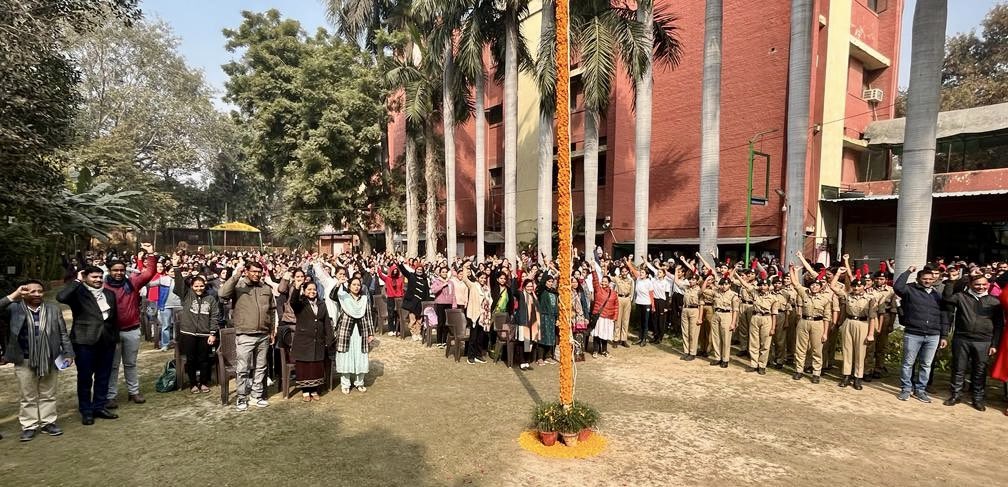
The government can support the startups like they're promoting the start-up so they can actually support the startups in fortifying their digital defences and also safeguarding sensitive data.
Sanyam Chhoriya (Jain): Yeah. So during my college life, as I said, my first year, engineering computer engineering joined my first year. Pura again. Then, what I wanted to pursue was cyber security and my first curriculum did not allow me, to because we had this honours, degree, major degree, or minor degree, and the minor degree was to be taken in the third year.
The second year, I had to bear the problem again for one more year. So what I did was I approached my college teachers and then said, Why don't we start our cyber security cell and club? Which, aware? Our college students about cyber security stuff, maybe the things going all around. And so there are these programs, cyber security programs wherein if you find some threads or bugs in any websites may be. Even these include government websites as well. So IRCTC, people have found a lot of bugs there. And IRCTC’s website is used daily per second by hell, a lot of people. So this is, where are you? Come into the picture where a 17-year-old kid reports a bug and gets awarded for that.
Sanyam Chhoriya (Jain): yes. So bug, bounty reward programs, it said programs should be more facilitated on government websites promote them, and then get those people who have found those bugs, all who have been rewarded on those bug bounty programs to found a youth cyber security team maybe for city chapter, or maybe for State chapter, or maybe for national chapter. So what will this lead to if youth are motivated to get onto that level? Where? How? How do people youth think on this key, how do we reach that stage where we can work with the government at the age of 17, and at the age of 18? This is the mentality I think the government can boost and it can, because people are trying their best to report bugs. For example, Maharashtra CET exams. The Maharashtra CET website was also vulnerable. My friend reported a bug and he! He got a bug bounty through that website. So there are a lot of examples where government websites are not pretty secure. And this is where they can find the right talent, because problems, hey? He to problems, ke saath solutions hai. If they offer bug bounty rewards programs, or talent, can be evaluated to use that talent for a better cause in future.
Side note by Sonam Bhagat: So you're saying a solution that provides, perhaps you know, the opportunity may need to just tell us, and perhaps we would. We would want to learn, and we would love to solve. And if at all, you have provided training as well as projects to work on like this, maybe in the form of internships or apprenticeships where stuff like this is not the regular stuff the Prime Minister has an apprenticeship scheme. Certain States also have introduced this, maybe not the regular government stuff, but stuff like this, which perhaps could interest you guys as well, because you're solving problems for a much larger system is exciting.
Udyati Goyal: So I agree with Sanyam. But I mean, so he said, about, you know, making people aware in his universities or colleges, through a cyber security cell or a club or something, but as from a commerce college. I have friends who are not doing engineering or in science colleges. And I've seen that about cyber security or about technology which is such an important part of the future. We are not told much about it and are not, you know, made aware of the stuff with no, they may be focused on like part of the future. So I feel that on all it should be like people should be made aware in all colleges, not only just engineering colleges or people that have taken science, they should provide with, you know, maybe free videos or awareness programs where you know, one could study about it because in the future, if they go through something or if they've started a company, and you know they want to protect their data or stuff, they wouldn't know what to do. And also I feel that as for the government, they should not only for you know the small startups, but they should, they should do R&D they should invest more in the RD. For the cyber security of the country as a whole, because, as you said, India is a very largely populated country, so there'll be a lot of problems in the future.
Side note by Sonam Bhagat: And there are these, there are these handovers that happen, so far as tech is concerned. Right? Because when, let's say, a startup. Who's who's expediting the delivery of food or or e-commerce products for you? They, when you're doing the transaction, they hand it over to the telecom provider, the telecom provider that hands it over connected to the bank's network the bank's network that connects back.
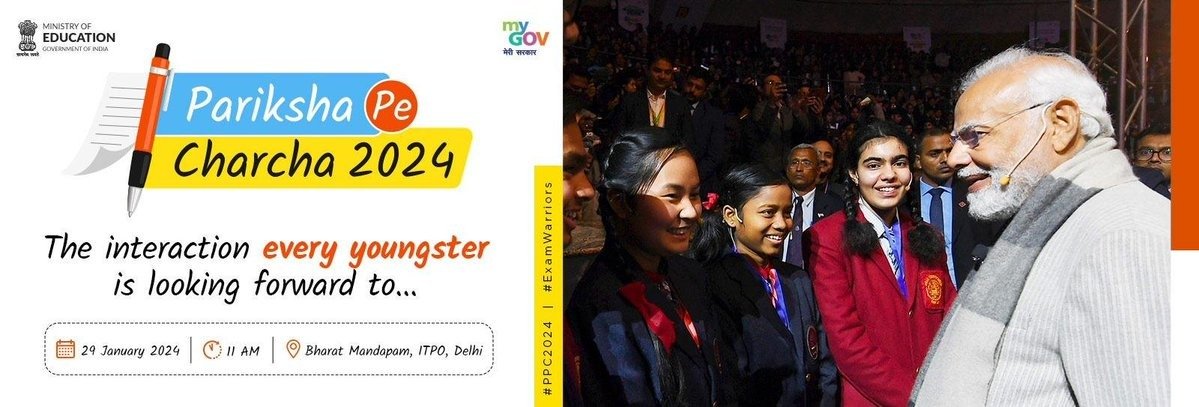
And then kind of so there are these multiple nodal points. And there is. There are essentially these kinds of handovers happening. Shimon, if you'd like to pitch in over here, please do. I think.
Shivam: Yes, the infrastructure here. It's a chain. It's not just one person doing it. And the chain goes address, you know, somebody at the central level only can do it. Yeah, so I agree with all the points. But I also believe that in addition to whatever the government can do, there's also a space for a lot of separate cyber security startups in India, because as the Indian software ecosystem grows bigger and bigger, it's also more vulnerable to attacks both from Indian Indians within India hackers and people abroad who are trying to stop sabotage the companies this is a problem which even companies in, for example, the US face. After all, recently there was a famous voice. A company was completely shut down for a a day because of a security attack, and that is also bound to happen in India too late to know later.
Shivam: So I believe that it has a lot of potential for family security startups in India which can address this gap for the other start-up software start-ups with our innovative influence.
How much do tax increases or decreases affect you? Did your parents discuss that with you? The slabs etc?
Priyansha Verma: So as a 16-year-old tax increases or decreases? Do not directly affect me in terms of filing taxes or managing finances. However, I do understand the broader impact on my family's budget, and even savings.
And my parents occasionally discuss taxes at home. And they might mention tax labs in passing, but not a significant. It is not a significant part of our conversation, to be honest.
Shivam: from what I've seen of the new tax scheme that I am being introduced, I think they are good for India being a developing economy. And yeah. it is. But that's that.
Udyati Goyal: So, as Priyansha said, I don't think, like most of the households don't discuss, you know, taxes or tax labs with their children, but I agree so as a 17-year-old. It does not, you know, directly affect me, but it affects my family, and since like we have a business, so it affects like, if my parents have to pay more taxes or fewer taxes, then it affects me because I get to buy more luxurious goods or less luxurious goods.
And yeah, that's it. So we don't have much of a discussion. It's not a major part of a conversation.
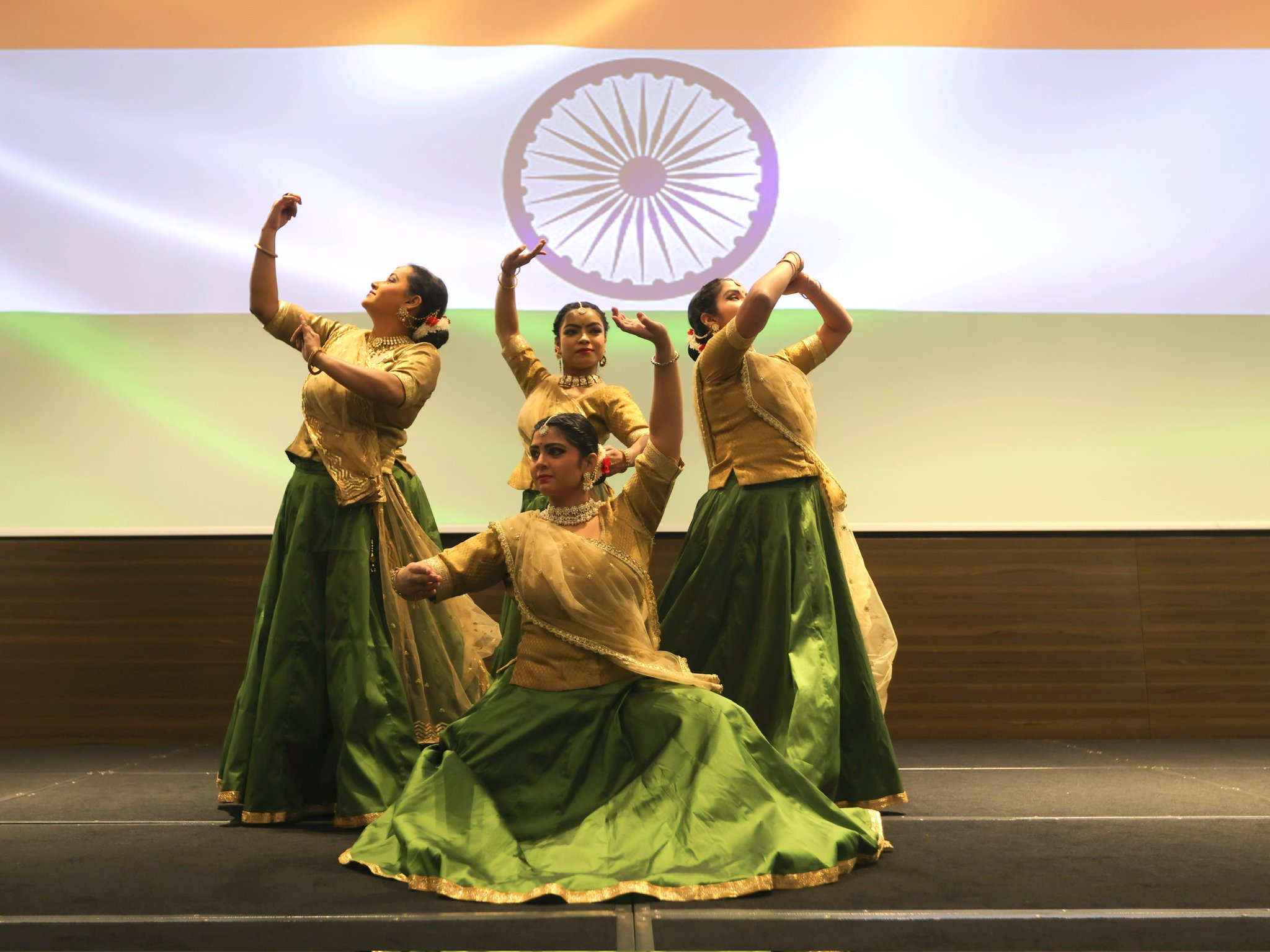
Sanyam Chhoriya (Jain): Yeah. Sorry, I was unmute So I think that but again, your financial awareness, this question might be maybe irrelevant for all 3 of you right now, but merely a question relevant. My father's a CA. And these conversations are frequent in my family. And now, because I've been doing multiple internships I know how invoices are sent, and how salaries and payments are done so tax labs are what concerns me and new and old tax regime benefits to a salaried class.
But I think government should focus on those people who are not paying taxes. And what I mean by this is that I come from a JN. Family and Jens contribute around 24% of the tax that is paid to the Government of India. I think that other rich classes are higher rich classes and mid-middle higher classes.
That those classes should be focused on. These people tend to hide their salaries, hide their businesses. These people should be caught on and hold on and not tax laps should not be much. Maybe.
Final note by Sonam Bhagat: So I take away 2 things from what you just said, Sam. One is the fact that financial awareness is not just to the point of you know. I know that. You know this is happening around in the country, or maybe whether it's Priyansha, or Shivam, or Udyati, or even you, for that matter, the up post household se belong taxes Rose discussing, because this is something of the. So I mean, it's a household vocation for you guys, right? But even for the others. Tomorrow, when you join internships tomorrow when you start doing apprenticeships also, which is before the time that you start doing your job, the education loans that you guys might end up taking because you are going to be headed for college education. And when you apply for that, how can those education loans be repaid while you are claiming tax benefits out of the interest on that? And things like that. All of these things are something that affects maybe over the next couple of months, and even over the next couple of years because when you start working, that is also that's where you will start. you should know that maybe close to around 10 to 15% of your income will not hit your bank if you, if you weren't clever about the way to, you know, perhaps take advantage of some of the government policies that have already given legitimately to take care of those.
The second bit that I take away from your conversations is I am. Is that just a salaried classile tax increase, or a decrease? This is the same class that you're tapping into while you're leaving a very large mass away all the time that ideally uses a lot of different other methods to masquerade. Their actual incomes, or maybe lower their tax incomes, or maybe even claim losses to the extent. You know, we're we're claiming losses for it. And whichever way that might be, C is I mean, there are entire institutions and offices set up for for that kind of that kind of gimmickry, so to speak, if I were to call it so. What you're saying is, I have loved this conversation with all of you, and I don't want to end it here, because I know that. you know, while it is, it is said that oh, you know they they don't care. Oh, you know, these guys are not interested in what's happening around them.
I take away. And I'm sure the audiences also take away this fact that they know better. You guys know better. You just decide to focus on a few things, or maybe let's just say you just decide to speak of a few things which you believe will create impact. Otherwise, you're like. And I think that's where you guys are. So your heart and mind are set in the right place, and thank you so much for this conversation. I hope you also had fun. Talking to each other and to be, and when this goes out, I'm sure. We will also end up creating some kind of impact on those who are listening. Thank you for joining this conversation.
ⒸCopyright 2024. All Rights Reserved Powered by Vygr Media.

